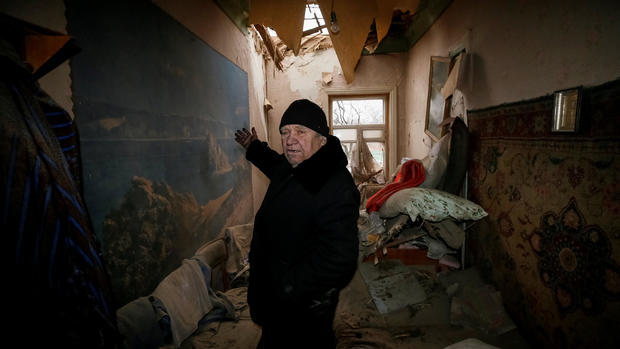Monitor: Ukraine cease-fire violations on the rise
UNITED NATIONS -- The mission monitoring a cease-fire agreement in Ukraine warned Friday that violations are becoming more frequent and severe, with heavy weapons often missing from storage areas and rockets and multiple launchers recently being used again.
CBS News analyst Pamela Falk reported "increased fighting in eastern Ukraine and the fear of a return to a wider war has alarm bells going off at U.N. headquarters."
Alexander Hug, the deputy chief monitor of the Organization for Security and Cooperation in Europe's mission in Ukraine, called on all sides to urgently return to the negotiating table.
Hug told the U.N. Security Council by videoconference that OSCE monitors have noted the movement and use of heavy weapons in areas where they are prohibited by the cease-fire agreement signed in the Belarus capital Minsk in February.
Hug said that the fighting shows that separatists are taking a military track rather than pursuing a political agreement, Falk reported.
Since fighting erupted in eastern Ukraine between government forces and Russian-backed separatists in April 2014, more than 6,400 people have been killed. The February cease-fire has been violated almost daily, but hostilities had tapered off after the agreement until Wednesday's heavy fighting near Donetsk which was the most severe in months.
UN political chief Jeffrey Feltman, who urged all parties to respect the cease-fire accord, said 28 people including nine civilians were killed in the clashes around Marinka on Wednesday.
"We are either looking at a return to a deepening, intractable conflict or a momentary upsurge in parts of the conflict zone," Feltman said. "We cannot afford either scenario."
Diplomats told Falk the fighting in Marinka "is the most serious violation since the accord was signed in Minsk II in February."
President Barack Obama spoke with Ukrainian President Petro Poroshenko Friday and the White House said both leaders expressed their "deep concern" about the fighting near Donetsk. They called on Russia and the separatists to live up to the cease-fire agreement.
The call came as Obama prepared to leave Saturday for the Group of Seven industrialized nations in Germany, where Ukraine and Russia are expected to be one of the top subjects of discussion. The White House said Obama underscored a commitment to a diplomatic resolution in eastern Ukraine and to keep economic pressure on Russia until Moscow meets the terms of the Minks accord.
Hug said OSCE monitors in many cases have been prevented from accessing heavy weapons holding sites and have been denied entry to specific areas, "notably along the Russian-Ukrainian international border."
OSCE drones have been jammed on a regular basis and monitors have also faced "threats, intimidation and have even been fired upon," he said.
Despite these obstacles, Hug said, the 375 monitors in the Donetsk and Luhansk regions have been able to effectively monitor the situation on the ground, and gather first-hand evidence of cease-fire violations.
Russia's U.N. Ambassador Vitaly Churkin said the root of the problem is the Kiev government's failure to carry out constitutional reforms and implement the cease-fire agreement which would have led to "a gradual normalization and democratic development of Ukraine."
"Now, a critical moment has come," Churkin said. "If we allow Kiev to continue to not implement the absolutely necessary political measures ... this situation could fall out of control with unpredictable consequences."
He urged Security Council members with influence on Ukraine "to do everything possible so that this should not take place."
U.S. Ambassador Samantha Power, who will visit Ukraine next week, accused combined Russian-separatist forces of launching multiple, coordinated attacks on Wednesday, while the Ukrainian government has made good faith efforts to honor the Minsk cease-fire.
